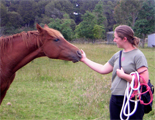More about atheism . . .
Kia ora koutou,
Anna Dunford was kind enough to direct me to this very interesting discussion about atheist Friends:
http://quakerphilosopher.blogspot.com/
There's really so much on there that interests/ annoys/inspires me that I don't know quite where to start . . . but the following words really speak for me, so I'll quote them (they're by one of the very outnumbered atheist Quakers taking part in the conversation):
"I do think of myself as a deep atheist. I have an extremely high level of confidence that the creator of the universe does not speak to me, does not speak to any of us, in fact does not exist. I wouldn't call it certainty, but I'd put it well north of 99 percent. And the depth of my conviction absolutely does not lead me to scoff, nor to feel uncomfortable in worship with believers. That would be terribly unfriendly, and I stand in solidarity with any Christian Friend who has been treated that way. Some of the loveliest, deepest, most thoughtful people I know are believers of various sorts. I do think they are mistaken on that particular question, as they think I am mistaken. But our F/friendship together is of far greater importance to me than our agreement."
My understanding of the other posts is that many of the authors struggle with the idea of an atheist quaker. Perhaps this is somewhat similar to the way I struggle to understand the world view of a religious scientist?
One of the questions asked (several times, actually) was something like 'why do atheists seek to join quakers when they do not believe in the same things as other people who are part of this established group?' Although I can think of several valid answers to that, it's not quite the right question in my opinion. In my experience the vast majority of atheist, non-theist and agnostic quakers were born into it. My family have been Quakers (in New Zealand and England) for at least five generations, and atheist Quakers for at least the last three. At the World Gathering of Young Friends I met or heard about atheist Friends from many many countries, and this leads me to suspect NZ may not be unique in this respect.
If atheist quakers come from within the society rather than without, this puts quite a different perspective on several of the other issues raised. Atheism is obviously one of the 'traditional' paths of Friends. A belief that is part of the family of Quaker beliefs. However, I am not terribly convinced by the idea that things are right simply because there is a precedent for them (incidently, I am even less convinced by the idea that older ideas are more pure and precious than newer evolutions). For me this is a question of tolerance. I do not want people who join Quakers and bring with them treasured christocentric beliefs to abandon these in favour of atheism simply because that is so common within my particular quaker circle! Firstly, this just seems mean, but secondly, I don't think it's justifiable to exclude people from Quakers on the basis of their beliefs if we claim sincerely to have no creed.
Perhaps a major issue here is to do with definitions. My experiences at the World Gathering convinced me that it is foolish and unhelpful to assume you know what is meant when others use words such as 'god', 'the inner light', 'Christian', 'atheist', etc. In my experience, even people using precisely the same language often turn out to mean very different things. While I appreciate that many people find it easier to get along with each other if they can find some common ground, I believe our ultimate challenge is to learn to get along in spite of our differences . . . because we can either celebrate diversity or try and squash it, and trying to make everyone the same almost always ends in violence.
 My World Gathering
My World Gathering


Julian: We have connection to people, and we have connection to ideas. For some, in some contexts one can be more important than the other. Both of them seem important in creating the certainty we need in our lives. My worldviews give me a framework for making sense of life. Without them I wouldn't know how to respond, everything would be bewildering. They are a cognitive construct, a kind of internal map that lets me make my way in the world. We also need to be connected to people, to love and be loved. I've always felt a strong connection to you Leith, a sense that we have much to learn from each other, and a deep respect for you and your actions. Because of this I think, I'm able to work with the difference in our worldviews. I'm not Christocentric, in fact I'm so universalist that I'm sometimes not far off being nontheist. But I do believe in god. And if I had to choose between being friends with someone I didn't feel connected to but had the same ideas as me, and someone I loved but who had different worldviews, well it's not a difficult decision... (09/16/06)
ross: oh c'mon julian dont leave us hanging! are you gonna beat the atheist with the stick of intolerance or is love and fluffies gonna shine through at the end... its all a big trick to make us buy the next book isn't it? as to the speaking to me i think that, although the use of words and phrases like "thats just mean" make me chuckle, its a wonderful view of not just tolerance (because tolerance seems so "mean", or at least to leave enough room for meanness) but actual love for diversity between/of people. i like it :) it makes me furry on the inside. (05/17/07)